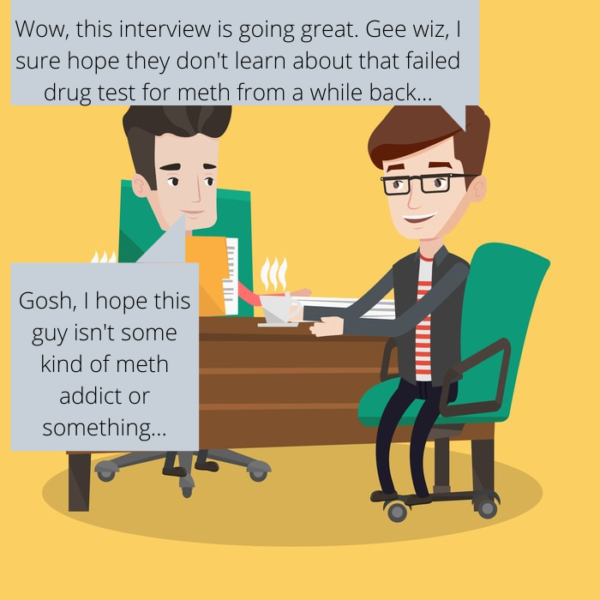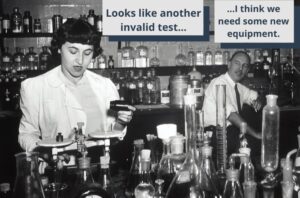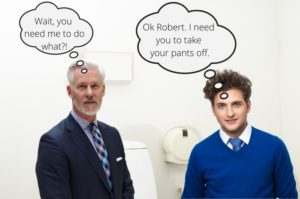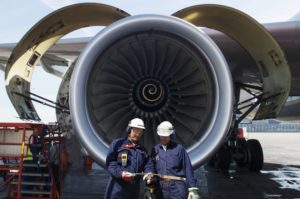When hiring a new driver, you must do FMCSA pre-employment drug testing. There are a few steps to doing this correctly. They are as follows:
- Do FMCSA pre-employment drug testing
- Do pre-employment alcohol testing (maybe; we will discuss shortly)
- Check for prior DOT drug and alcohol testing violations
Also, you must carry out these steps for existing employees transferring to safety-sensitive functions for the first time in your company. For example, if an accountant for your company is now transferring over to driving for you company, that employee must do FMCSA pre-employment drug testing. In addition to drug tests, employers may also utilize a polygraph exam as part of their recruitment process.
By following these steps, you ensure that the FMCSA will not penalize your company with any fines or mandates.
FMCSA Pre-Employment Drug Testing
Let’s start at the top: the FMCSA pre-employment drug test. This is one of the six drug testing situations in DOT testing programs. Any time you hire a driver, you must do a drug test. And that drug test must happen before the driver begins safety-sensitive work (i.e. driving).
If you’d like to learn more about what safety-sensitive means and what constitutes safety-sensitive work, you can read more about that by clicking the link.
Your company likely already has a DOT testing program in place. You’ll want to communicate with the designated employer representative (or DER for short) that an applicant needs to do a pre-employment test, and either you or the DER will arrange it with whoever provides testing for your company.
If your company isn’t currently working with a testing company for your FMCSA drug testing, then you need to work in concert with your DER to set that up.
And if your company doesn’t have a DER, then you need to discuss with someone within your company to make sure they assign the DER role to someone. It is a required part of your FMCSA testing policy that your company has a DER.
Also, the DER must be an employee of the company. The DER role cannot be outsourced. If you’d like to learn more about what the DER does in a DOT and FMCSA-regulated company, you can do so by clicking the link.
FMCSA pre-employment drug testing is almost always a urine drug test for the 5-panel drugs: marijuana, cocaine, amphetamines, opioids, and PCP.
Once you settle on an applicant, the new driver must receive a verified negative drug test result before starting safety-sensitive functions.
When You Do Not Have to Do FMCSA Pre-Employment Drug Testing
There are certain situations where you do not have to do pre-employment drug testing. If the applicant meets certain criteria, then it is not necessary.
First, the driver/applicant must have participated in a DOT drug testing program within the last 30 days.
Second, the driver must have either taken and passed a DOT drug test in the past six months or participated in a DOT drug testing program for the past twelve months.
And third, the driver must not have violated DOT rules over the past six months. This goes back to the last step I mentioned when bringing on a new driver, that you must check for past DOT violations. We will discuss the steps you must take to do this shortly.
If the driver meets these three points, then you do not have to do a pre-employment test as per FMCSA testing policy.
Also, these conditions apply to all DOT agencies. So, for example, if the applicant meets these conditions but had been participating in an FAA rather than FMCSA testing program, the applicant would still be exempt from pre-employment testing.
FMCSA drug testing programs involve many rules and regulations similar to the ones highlighted above. If you’d like to get a more complete overview of FMCSA drug and alcohol testing rules, then take a look at our post covering the regulations behind FMCSA testing, 49 CFR Part 382. It goes into detail on the regulations.
FMCSA Pre-Employment Alcohol Test (Possibly)
Some companies also do alcohol testing along with FMCSA pre-employment drug testing. While it seems a bit unlikely that an applicant is going to show up to an interview or job offer inebriated, an alcohol test may still be effective at weeding out some of those a little too keen on the spirits.
If your company does pre-employment alcohol testing for drivers, you and your company must follow a set of rules laid out in FMCSA testing policy:
- The alcohol test must follow an employment offer
- Applicant must take the alcohol test before performing safety-sensitive functions
- The driver’s (or soon-to-be driver) BAC must be less that 0.04. If it is 0.04 or higher, then he or she must complete the DOT return-to-duty process. Learn more about the DOT return-to-duty process by clicking the link here.
- The test must follow DOT alcohol testing procedures as described in 49 CFR Part 40
- Your company must do pre-employment alcohol testing for all applicants after an employment offer; you cannot test some applicants and not others. This opens up the possibility for discrimination
Make sure you know whether your company requires an alcohol test along with the pre-employment drug test. This is yet another topic to confer about with your DER.
Check For Past DOT Violations
Checking for past DOT violations has always been an important part of FMCSA pre-employment drug testing. But how employers check for past DOT violations has changed recently. In the past, you would have to obtain a list of past employers from the applicant and gain consent from the applicant to get DOT drug and alcohol testing info from those past employers.
Also, you would need the applicant to list any other employers to whom he had applied to and taken a DOT pre-employment drug and/or alcohol test. So, in essence, the entire operation hinged on the applicant abiding by the honor system. There must be a better way, right?
That’s where the FMCSA Clearinghouse comes into the fold. The FMCSA Clearinghouse is a database storing all information on drivers’ DOT violation records. This clearinghouse has been integrated into the DOT drug and alcohol testing process. If a driver has a DOT violation in his or her past, the clearinghouse will have it stored neatly away.
So now, instead of forming a list, getting consent, and reaching out manually to past employers, you need only to check the FMCSA Clearinghouse.
How You Need to Use the FMCSA Clearinghouse When Doing FMCSA Pre-Employment Drug Testing
For pre-employment hiring of drivers, you must do a full query on applicants. All this means is that you run a search of the database for any and all violations listed under the driver’s name.
Register with the FMCSA Clearinghouse
To make any query on an applicant, though, you first have to register with the clearinghouse. Here are a couple of links with instructions for registration with the clearinghouse:
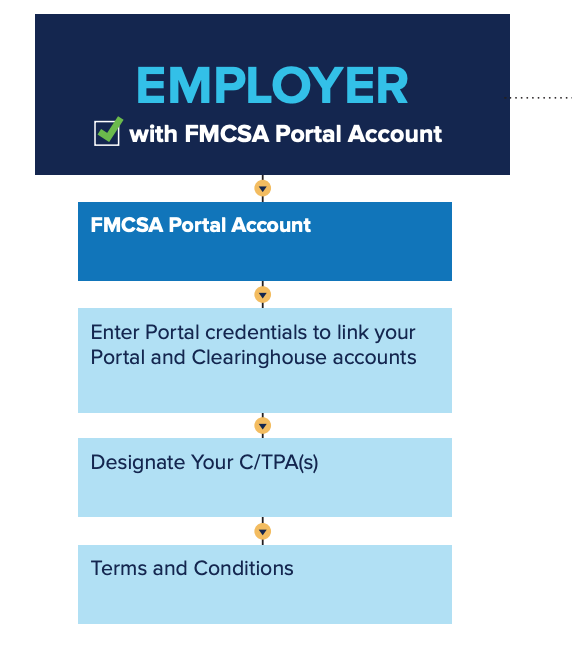
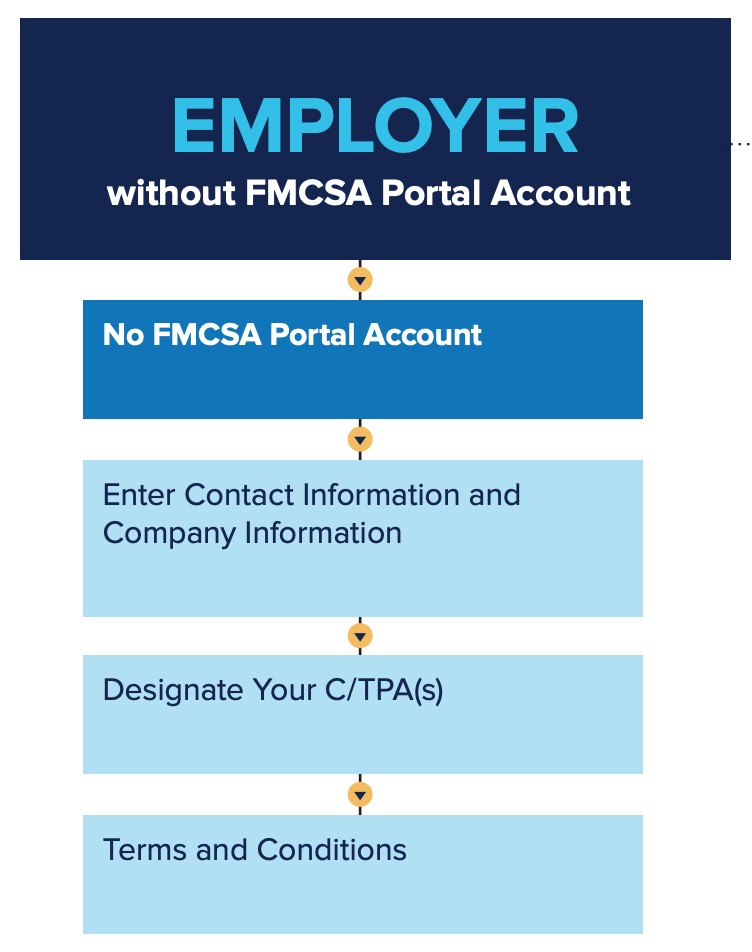
Once registered, you will need to purchase a query plan. A single query costs $1.25 to make. So just multiply that by the number of drivers your company employs, and that is going to be roughly the cost of your plan.
Understand the Two Types of Queries: Full and Limited
When running a query on the FMCSA Clearinghouse, you have the option between full and limited.
A limited query is one in which you run to learn whether the driver/applicant has anything listed in the database. So, if the applicant has a verified positive DOT drug test from 18 months ago listed in the database, you will learn that something is listed through your limited query.
But the limited query will not tell you what exactly is listed. You will not learn that it is a verified positive DOT drug test. Even further, you won’t know whether the driver has one violation listed or ten.
For that, you need to run a full query. A full query provides you with all the information on that driver in the database. A full query will show you what violations the driver has, and it will provide info on whether the driver has completed the DOT return-to-duty process if he or she needed to.
If you’d like a little more info on the DOT return-to-duty process, we also have a post covering the topic. You can click on the link right here.
Get Consent from Applicant to Make the Query in the Clearinghouse
Before running a query, you need to get consent from the applicant. For a limited query, you can get consent either in written or electronic form. And you need to retain that consent for at least three years after the last query is run on that person.
For a full query, though, you need to get consent electronically through the FMCSA Clearinghouse.
Since you need to run a full query when hiring a new driver, you will need to get electronic consent from the applicant through the clearinghouse.
If the applicant does not give consent, he or she cannot perform safety-sensitive functions (i.e. driving) for your company. And a driver isn’t terribly useful if he or she can’t actually drive.
Using the FMCSA Clearinghouse is mostly straightforward, and it is a necessary part of an FMCSA testing policy.
Run the Query
Now that you have registered with the FMCSA Clearinghouse, purchased a query plan, learned the two types of queries, and received consent from the applicant, you are ready to run the query.
If you find that the applicant has a clear record, then you are free to proceed with the hiring process.
But if the applicant has past violations on record, you need to make sure that the applicant has taken and completed the necessary steps in the return-to-duty process. If not, you cannot allow the applicant to perform safety-sensitive functions for your company until doing so.
In some unlikely instances, an applicant may have completed SAP evaluation, treatment and education, and return-to-duty testing, but not the slated follow-up tests. In this case, it is okay for the applicant to begin if you and your company are content with carrying out the follow-up tests. Of course, that’s going to cost some additional dollars.
Conclusion
FMCSA pre-employment drug testing, pre-employment alcohol testing, and checking for past DOT violations make up the needed steps regarding your FMCSA testing policy when hiring a driver.
Following these steps will make sure that you and your company stay in good standing with the FMCSA and DOT. Now, if you are so unfortunate as to get audited by the FMCSA, you’ll be alright — at least on this front and assuming you followed these steps.
Let us know in the comments if you have any experience with the pre-employment testing process. Also, if you have any questions please feel free to ask.
Until next time, ladies and gents.
